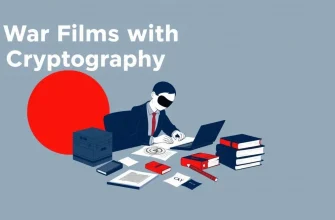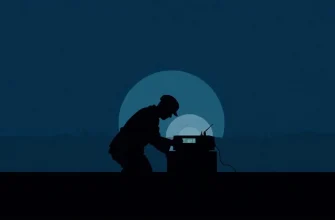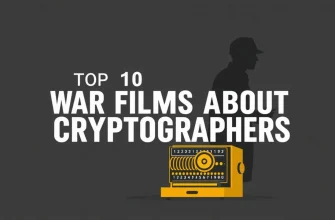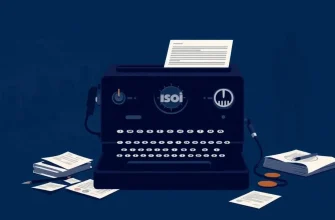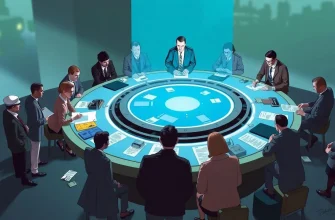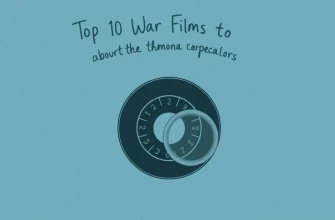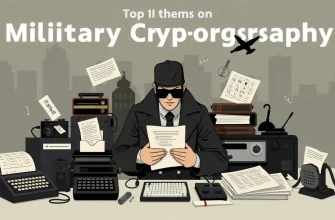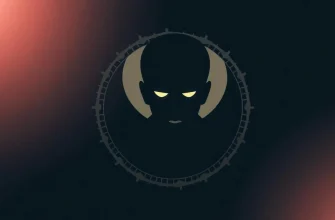War films have always captivated audiences with their intense narratives, but there's something uniquely intriguing about those that delve into the world of codebreaking and espionage. These films not only offer a glimpse into the secretive operations behind the scenes of war but also highlight the intellectual battles that were as crucial as the physical ones. Here's a curated list of 10 films that explore the world of wartime codebreakers, providing both historical insights and thrilling entertainment.

The Man Who Knew Too Much (1956)
Description: Alfred Hitchcock's classic involves a plot where an assassination is planned using coded messages, showcasing the importance of codebreaking in preventing international incidents.
Fact: This was Hitchcock's second adaptation of his own earlier film from 1934, with significant changes to the plot.
 Watch Now
Watch Now 
Operation Crossbow (1965)
Description: While primarily about the Allied efforts to sabotage the German V-1 and V-2 rocket programs, it includes elements of codebreaking and espionage, showcasing the multifaceted nature of intelligence during the war.
Fact: The film features a star-studded cast including George Peppard, Sophia Loren, and Trevor Howard.
 Watch Now
Watch Now 
The Enigma of Kaspar Hauser (1974)
Description: While not directly about WWII, this film explores themes of mystery and code, paralleling the secretive nature of wartime codebreaking with the enigma of Kaspar Hauser's identity.
Fact: Directed by Werner Herzog, the film is known for its surreal and philosophical approach to storytelling.
 Watch Now
Watch Now 
U-571 (2000)
Description: While not strictly about codebreaking, this film involves the capture of an Enigma machine from a German U-boat, which was crucial for the Allies' codebreaking efforts. It's an action-packed depiction of naval warfare and the race to secure vital intelligence.
Fact: The film was criticized for historical inaccuracies, particularly regarding the portrayal of American involvement in capturing the Enigma machine.
 Watch Now
Watch Now 
The Good Shepherd (2006)
Description: This film follows the life of Edward Wilson, a CIA operative, and includes scenes of codebreaking and intelligence gathering during WWII and the Cold War, reflecting the continuous importance of these skills.
Fact: Robert De Niro not only stars in the film but also directed it, marking his second directorial effort.
 Watch Now
Watch Now 
The Imitation Game (2014)
Description: This film centers on Alan Turing, a brilliant mathematician who led the team at Bletchley Park to crack the German Enigma code, significantly impacting World War II. It's a compelling story of intelligence, secrecy, and personal struggle.
Fact: Benedict Cumberbatch's portrayal of Turing was critically acclaimed, earning him an Oscar nomination. The film also won the Academy Award for Best Adapted Screenplay.
 Watch Now
Watch Now 
Enigma (2001)
Description: Set in 1943, this film follows a young codebreaker at Bletchley Park who must solve a new Nazi code while dealing with personal loss and intrigue. It provides a less known perspective on the codebreaking efforts during WWII.
Fact: The film was based on the novel by Robert Harris, who also wrote the screenplay. It features Kate Winslet in one of her early roles.
 30 Days Free
30 Days Free 
The Wind That Shakes the Barley (2006)
Description: Although primarily about the Irish War of Independence, this film includes scenes where the IRA uses codebreaking to intercept British communications, adding a layer of espionage to the narrative.
Fact: The film won the Palme d'Or at the Cannes Film Festival, highlighting its critical acclaim.
 30 Days Free
30 Days Free 
The Codebreaker (2011)
Description: This documentary focuses on Elizabeth Smith Friedman, a pioneering codebreaker whose work was instrumental in WWII and beyond. It's a tribute to the unsung heroes of codebreaking.
Fact: The film was produced by PBS's American Experience series, highlighting lesser-known figures in American history.
 30 Days Free
30 Days Free 
The Secret War (1977)
Description: This documentary series covers various aspects of WWII, including codebreaking, with episodes dedicated to the work at Bletchley Park and the impact of intelligence on the war's outcome.
Fact: Hosted by Sir William Stephenson, a real-life intelligence officer, it provides firsthand accounts of wartime espionage.
 30 Days Free
30 Days Free 

